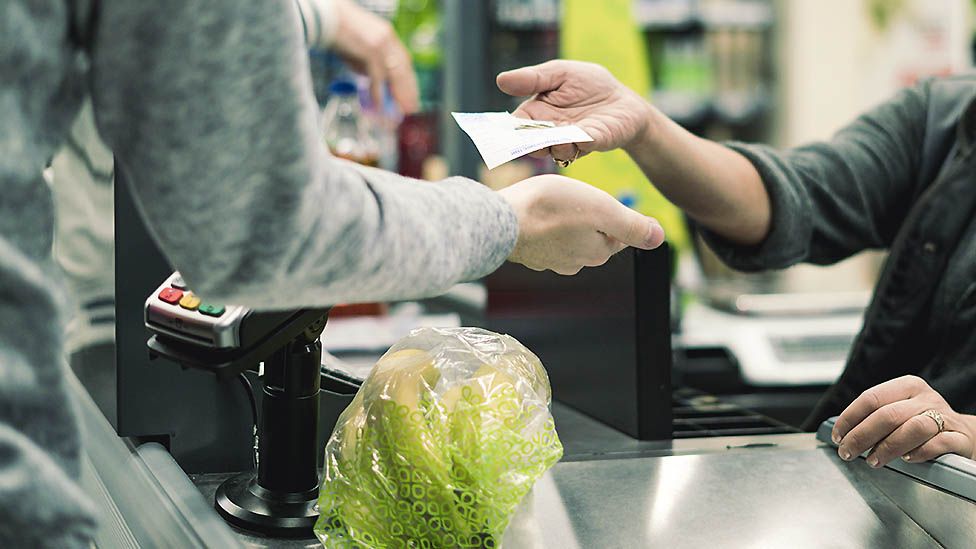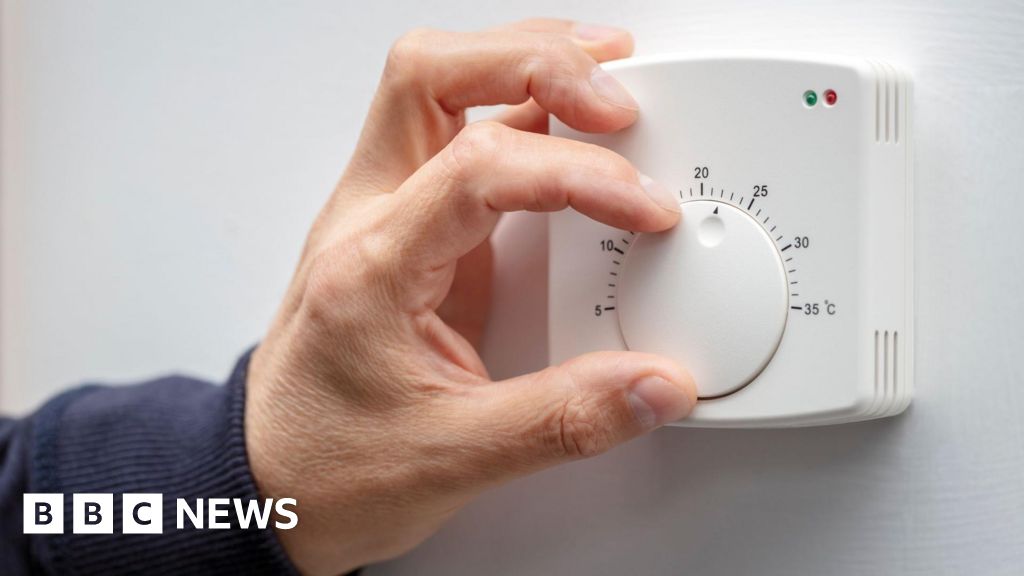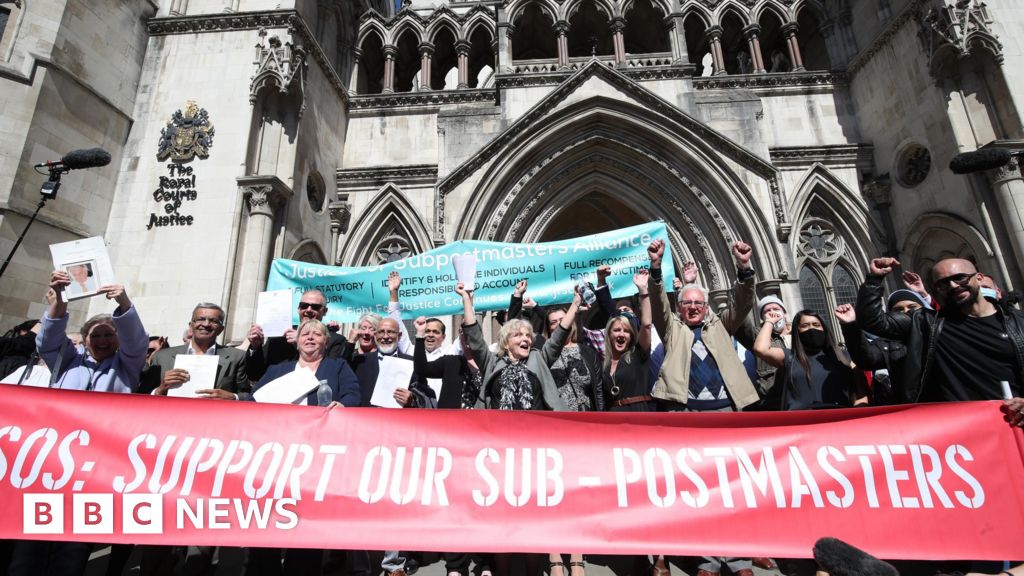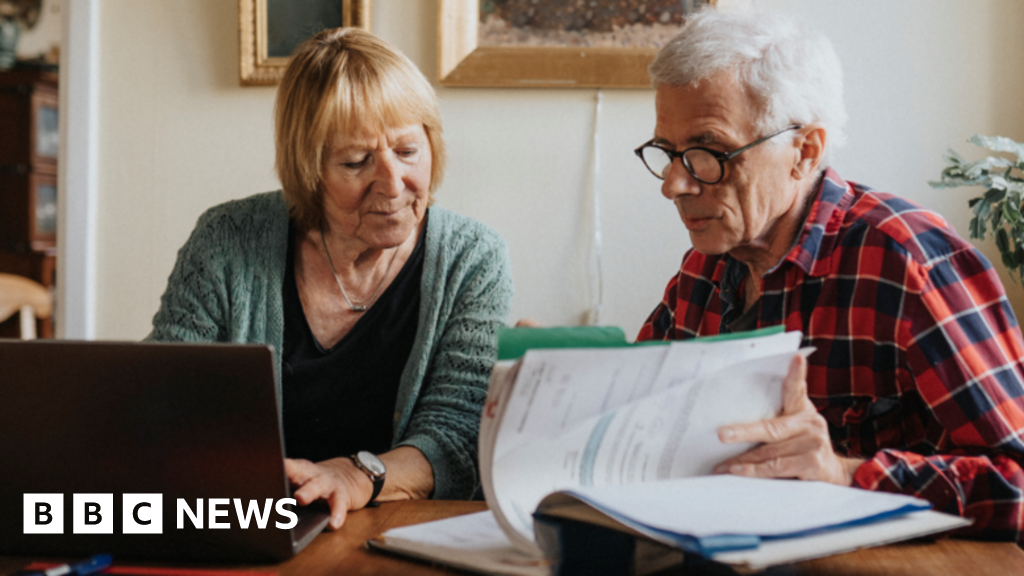ARTICLE AD BOX
By Noor Nanji & Angela Henshall
Business reporters, BBC News
 Image source, Getty Images
Image source, Getty Images
People are going back to cash to keep tighter control on their spending as living costs soar, according to new research by the Post Office.
Post offices handled £801m in personal cash withdrawals in July, the most since records began five years ago.
That's up more than 20% from a year earlier.
Natalie Ceeney, chair of the Cash Action Group, said it showed people are "literally counting the pennies" as they grapple with rising prices.
"It's absolutely because of the cost of living crisis," said Ms Ceeney, who chaired the government's independent Access to Cash review.
"People will be taking out cash and physically putting it into pots, saying 'this is what I have for bills, this is what I have for food, and this is what's left'."
Prices are currently rising faster than they have for 40 years.
The increase in the cost of living is putting a squeeze on people's finances, as incomes fail to keep up.
In total, £3.32bn in cash was deposited and withdrawn at Post Office counters in July, £100m higher than in June.
Personal cash withdrawals, at £801m, were up almost 8% month-on-month and up more than 20% year-on-year.
It is the highest amount since records began five years ago, and only the second time that personal cash withdrawals have exceeded £800m. The last time was December 2021, and there's always an increase in withdrawals around that time of year, the Post Office said.
The Post Office put the extra volume of withdrawals at its 11,500 branches down to more people turning to cash to help manage their budgets on a week-by-week and often a day-by-day basis.
It also said it was partly due to more people choosing to have staycations, with recent research by the Post Office finding that 71% of Brits planning on going on holiday in the UK this year intended to take out cash before leaving.
Martin Kearsley, banking director at the Post Office, said: "We're seeing more and more people increasingly reliant on cash as the tried and tested way to manage a budget.
"Whether that's for a staycation in the UK or if it's to help prepare for financial pressures expected in the autumn, cash access in every community is critical."
Cash deposits also rose, according to the research.
Individuals deposited £1.35bn in cash in July, up 2% month-on-month, while cash deposits for businesses totalled £1.13bn, up 1.9% from a month earlier.
Mr Kearsley said the figures showed Britain is "anything but a cashless society".
Counting the pennies
Ms Ceeney told the BBC that it was easy to see why cash use was going up, given the rising cost of living.
"Cash has been in decline for well over a decade, the pandemic accelerated this, but now it's going back up, and that's absolutely because of the cost of living crisis," she said.
"It helps people budget, as using cash means you literally can count the pennies. We all know that if you pay with a card, it's so easy to spend money you don't have and then go overdrawn.
"If you've only got £30 to last you the week, holding that in notes and coins is still the most effective way of budgeting and controlling how much you spend."
With more banks closing branches, Ms Ceeley said there's a need for post offices and shared banking services to allow people to get the cash that they need, especially for vulnerable or elderly people or those who don't have access to digital banking.
"The reality is digital doesn't work for everyone," she said.
"Millions of people don't have access to computers or smartphones, and so we need to keep cash viable."
Are you using cash more? Email haveyoursay@bbc.co.uk.
Please include a contact number if you are willing to speak to a BBC journalist. You can also get in touch in the following ways:
If you are reading this page and can't see the form you will need to visit the mobile version of the BBC website to submit your question or comment or you can email us at HaveYourSay@bbc.co.uk. Please include your name, age and location with any submission.

 2 years ago
44
2 years ago
44








 English (US) ·
English (US) ·